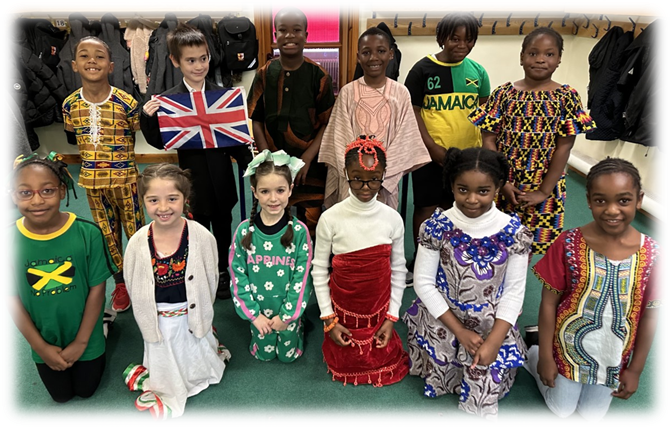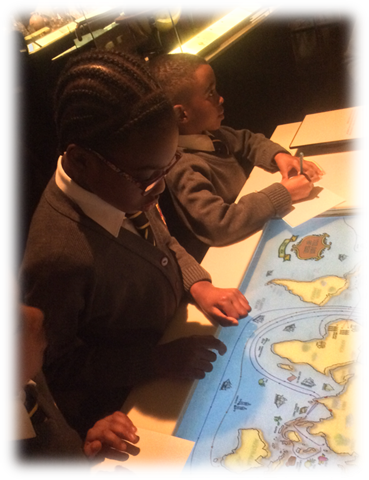Geography

Geography Curriculum Intent, Impact and implementation statement
We aim to create
Adventurous, Global, Explorers
Intent
At St Chad’s, we want our children to be inquisitive and to question the information they are presented with, to further their geographical understanding. We want children to know where they are located within the world as well as within the British Isles. We ensure that children know how to use a range of tools to understand their location and the landscapes of contrasting environments. Geography is an exciting subject that helps us to better understand the people, places and environments in the world. Our geography curriculum inspires children’s curiosity about the world. It provides building blocks needed for a deeper understanding of how human and physical geography vary in different climates and time zones.
The national curriculum for geography aims to ensure that all pupils:
- develop contextual knowledge of the location of globally significant places – both terrestrial and marine – including their defining physical and human characteristics and how these provide a geographical context for understanding the actions of processes
- understand the processes that give rise to key physical and human geographical features of the world; how these are interdependent and how they bring about spatial variation and change over time
They are competent in the geographical skills needed to:
- collect, analyse and communicate with a range of data gathered through experiences of fieldwork that deepen their understanding of geographical processes
- interpret a range of sources of geographical information, including maps, diagrams, globes and aerial photographs.
- communicate geographical information in a variety of ways, including through maps, numerical and quantitative skills and writing at length.

Implementation
Our geography projects are well sequenced and develop children’s geographical knowledge, skills and subject disciplines. We have chosen our geographical locations to provide a broad and diverse understanding of the world and reflect diverse community of St Chad’s. Our curriculum covers six major aspects: sustainability, location, human and physical features, human and physical processes, comparing and contrasting and diversity and equality. Our geography topics focus on ‘sticky knowledge’ which encourages the children to focus on key aspects of the topic. The children are encouraged to be inquisitive and ask questions. Geography is the focus topic for the two half terms a year, however we also aim to ensure that it is integrated into other areas of the curriculum and the basic skills are taught throughout the year through cross curricular work. At all times it is clear to the pupil when teaching through a topic approach what subject they are actually learning.
Key Stage 1
In Key Stage 1, geography topics begin with a map work which enables children to be introduced to, and revisit critical geographical concepts, aspects, skills and knowledge. This prepares children for the study of the geography of urban environments and human and physical features of United Kingdom and the World. At the end of Year 2, children carry out a detailed study of coastal geography in the project Beach Bonanza. This project introduces children to the geography of coastal environments.
Key Stage 2
In both Lower and Upper Key Stage 2, children begin their geography topics with map work which aims to develop essential skills, knowledge and understanding of key geographical aspects and concepts and prepares them to study more thematic geography.
During KS2 children extend their knowledge and understanding beyond the local area to include the United Kingdom and Europe, North and South America. This includes the location and characteristics of a range of the world’s most significant human and physical features. Children develop their use of geographical knowledge, understanding and skills to enhance their locational and place knowledge.

Impact
The geography curriculum has a profound and positive impact on the outcomes of every child. It gives opportunities for children to become adventurous, global explorers and use maps confidently. The structure of the curriculum and focus on ‘sticky knowledge’ allows children to return to core knowledge and skills throughout the course of their schooling and build on them to become more proficient in a subject. This also allows children to ‘link their thinking’ and supports retention of key knowledge and skills.
Core knowledge of each unit is supported by our long-term plans which detail the ‘Sticky Knowledge’ for each topic, vocabulary and key questions.
We endeavour to create strong and appropriate links with other subjects to enhance the curriculum and learning experience predominantly, but not exclusively, with maths, literacy, music, PSHE, history and science.
Our teachers use a range of assessment tools, including end-of-the-term assessment in form of quizzes, projects, or challenging tasks, to provide data on the knowledge and skills pupils have, their progress and their development points.
